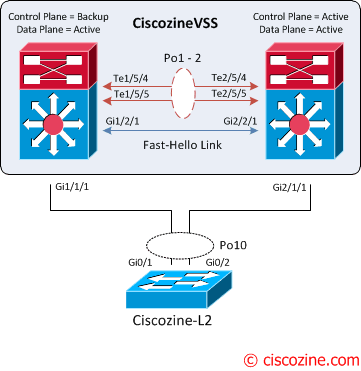- Cisco 3850 Reload Slot Command Block
- Cisco 3850 Commands Cheat Sheet
- Cisco 3850 Reload Slot Command Linux
- Cisco Switch Reload Command
- Cisco 3850 Switch Commands
The Cisco Catalyst 3850 is hardware capable for 802.1ae on all ports on the switch. Software support will be available later. What management ports are available on the Cisco Catalyst 3850? The Cisco Catalyst 3850 comes with a 10/100 Ethernet dedicated management port on the backside of the switch right above the console port. Consequently, we are upgrading a total of 92 Cisco 3850 switches over the course of 2 nights. I decided to set up constant pings to our devices and use the 'reload at' command to reload all of the switch stacks on all 6 floors of one building at the same time. For the most part we can plug in the following commands when the stack is already in install mode and the stack comes up without an issue upon reload. Software install file flash:/cat3kcaa-universalk9.SPA.03.06.06.E.152-2.E6.bin new force reload yes.
We are currently suffering from a couple bugs (one internal which causes the switch to reboot and one cosmetic bug that just fills up our syslog server). Consequently, we are upgrading a total of 92 Cisco 3850 switches over the course of 2 nights.I decided to set up constant pings to our devices and use the 'reload at' command to reload all of the switch stacks on all 6 floors of one building at the same time.
We are currently on code version 03.03.05 and are upgrading to 03.07.00 at the advice of Cisco TAC.
I couldn't find much good documentation on the 'reload at' command so I used my test switch stack to figure it out (using the question mark on the CLI is kind of ambiguous).
Below shows what I typed into the CLI:
Cisco 3850 Reload Slot Command Block
You can also issue the following command to reload on a specific day:
Switch#reload at 20:00 07 Dec Upgrade
or a specific time:
Switch#reload in 120 (reloads the switch in 2 hours)
Update - 6/10/2015
Reload/Upgrade successful!
Here is what the switch does when you are logged in to it.
Reload scheduled for 21:05:00 PDT Tue Jun 9 2015 (in 1 minute and 20 seconds) by xxxxxxxxx on vty0 (x.x.x.x)
Reload reason: 6/09/15 Upgrade
Swtich#sh clo
21:03:56.858 PDT Tue Jun 9 2015
Switch#
***
*** --- SHUTDOWN in 0:01:00 ---
***
Switch#
***
*** --- SHUTDOWN NOW ---
***
Update - 4/29/2016
We are no longer on IOS 03.07.00 and have actually downgraded to 03.06.04 which is the recommended release. We were having some 'bug'gy behavior.
Cisco switches can be used as plug-and-play devices out of the box but they also offer an enormous amount of features. Although the main purpose of the switch is to provide inter-connectivity in Layer 2 for the connected devices of the network, there are myriad features and functionalities that can be configured on Cisco Switches.
In the following Cisco Switch Commands Cheat Sheet, I have tried to include the most important and frequently-used CLI commands that Cisco professionals encounter in real world networks. I know that the list is not exhaustive but I believe that the most useful commands are included. Make sure to download the whole commands cheat sheet in PDF format below so you can print it or save it on your computer for future reference.
NOTE: Other Cisco Command Cheat Sheet Posts:
The following commands will work on most Cisco switch models such as 4500, 3850, 3650, 2960, 3560 etc.
Verification Commands:
TestSwitch#show version
[Displays software and hardware information]
TestSwitch#show running-config
[Displays currently running configuration in DRAM]
TestSwitch#show start
[Displays configuration in NVRAM which will be loaded after reboot]
TestSwitch#show flash:
[Displays Flash memory information]
TestSwitch#show boot
[Displays boot path and image]
TestSwitch#show clock
[Displays the system clock]
TestSwitch#show interfaces
[Displays all interfaces configuration and status of line]
TestSwitch#show vlan

[Displays vlan number, name, status and ports associated with it]
TestSwitch#show vtp status
[Displays VTP mode, Number of existing vlans and config revision]
TestSwitch#show interface status
[Displays interface status, vlan, Duplex, Speed and type]
TestSwitch#show etherchannel Free no deposit bonus slots.
[Displays etherchannel information]
TestSwitch#show cdp neighbors
[Displays information of connected devices]
TestSwitch#show cdp neighbors detail
[Displays detailed information of connected devices]
TestSwitch#show mac address-table
[Displays current MAC address forwarding table and which MAC is learned on each switch port]
TestSwitch#show spanning-tree
[Displays spanning-tree state information, which interfaces are in active or blocking state etc]
Resetting the Switch
TestSwitch#delete flash:vlan.dat
[Deletes vlan database from flash memory so you can start adding new VLANs from scratch]
TestSwitch#erase startup-config
[Delete start-up file from NVRAM]
TestSwitch#reload
[Reboot the Switch]
Setting Host Names
TestSwitch#config t
[Entering into Global Configuration Mode]
TestSwitch(config)#hostname MySwitch
[Enter the hostname of the switch]
MySwitch(config)#
Setting login credentials:
MySwitch(config)#username admin password csico1234
[create username and password for logging in to the switch]
MySwitch(config)#enable secret test1
[Sets encrypted secret password using MD5 algorithm. This is the enable password that you will be asked to enter when trying to enter into 'enable' mode]
MySwitch(config)#service password-encryption
[Encrypt all the passwords using MD5]
Console Access:
MySwitch(config)#line con 0
[Enter into line console mode]
MySwitch(config-line)#password test3
[Set password on console]
MySwitch(config-line)#login
[Enable password checking on console]
SSH/Telnet Access to the switch:
MySwitch(config)#line vty 0 4
[Enters line vty mode for all five virtual ports]
MySwitch(config-line)#transport input ssh
[Enable SSH]
MySwitch(config-line)#transport input telnet
[Enable telnet]
MySwitch(configiline)#password test3
[Set password]
Setting IP Address (To allow remote access to the switch):
MySwitch(config)#interface vlan1
[Enters vlan1, the native vlan]
MySwitch(config-if)#ip address 192.168.1.2 255.255.255.0
[Set IP address for management]
MySwitch(config-if)#exit

[Displays vlan number, name, status and ports associated with it]
TestSwitch#show vtp status
[Displays VTP mode, Number of existing vlans and config revision]
TestSwitch#show interface status
[Displays interface status, vlan, Duplex, Speed and type]
TestSwitch#show etherchannel Free no deposit bonus slots.
[Displays etherchannel information]
TestSwitch#show cdp neighbors
[Displays information of connected devices]
TestSwitch#show cdp neighbors detail
[Displays detailed information of connected devices]
TestSwitch#show mac address-table
[Displays current MAC address forwarding table and which MAC is learned on each switch port]
TestSwitch#show spanning-tree
[Displays spanning-tree state information, which interfaces are in active or blocking state etc]
Resetting the Switch
TestSwitch#delete flash:vlan.dat
[Deletes vlan database from flash memory so you can start adding new VLANs from scratch]
TestSwitch#erase startup-config
[Delete start-up file from NVRAM]
TestSwitch#reload
[Reboot the Switch]
Setting Host Names
TestSwitch#config t
[Entering into Global Configuration Mode]
TestSwitch(config)#hostname MySwitch
[Enter the hostname of the switch]
MySwitch(config)#
Setting login credentials:
MySwitch(config)#username admin password csico1234
[create username and password for logging in to the switch]
MySwitch(config)#enable secret test1
[Sets encrypted secret password using MD5 algorithm. This is the enable password that you will be asked to enter when trying to enter into 'enable' mode]
MySwitch(config)#service password-encryption
[Encrypt all the passwords using MD5]
Console Access:
MySwitch(config)#line con 0
[Enter into line console mode]
MySwitch(config-line)#password test3
[Set password on console]
MySwitch(config-line)#login
[Enable password checking on console]
SSH/Telnet Access to the switch:
MySwitch(config)#line vty 0 4
[Enters line vty mode for all five virtual ports]
MySwitch(config-line)#transport input ssh
[Enable SSH]
MySwitch(config-line)#transport input telnet
[Enable telnet]
MySwitch(configiline)#password test3
[Set password]
Setting IP Address (To allow remote access to the switch):
MySwitch(config)#interface vlan1
[Enters vlan1, the native vlan]
MySwitch(config-if)#ip address 192.168.1.2 255.255.255.0
[Set IP address for management]
MySwitch(config-if)#exit
MySwitch(config)#ip default-gateway 192.168.1.1
[Exit path for the switch – gateway IP]
Interface description
MySwitch(config)#interface g0/1
MySwitch(config-if)#description TO SERVER
Duplex and Speed Settings
MySwitch(config)#interface g0/1
MySwitch(config-if)#speed 10
[Force 10Mbps Speed]
MySwitch(config-if)#speed 100
[Force 100Mbps Speed]
MySwitch(config-if)#speed auto
[Enable auto speed configuration]
MySwitch(config-if)#duplex auto
[Enable auto duplex configuration on switch port]
MySwitch(config-if)#duplex full
[Enable full duplex configuration on switch port]
MySwitch(config-if)#duplex half
[Enable half duplex configuration on switch port]
Setting Web-based interface for configuration (GUI):
MySwitch(config)#ip http server
[Enable HTTP server]
MySwitch(config)#ip http port 80
[Set port number for HTTP]
Port-Security
MySwitch(config)#interface g0/1
[Enter the interface to set port-security]
MySwitch(config-if)#switchport port-security
[Enable port security on the interface]
MySwitch(config-if)#switchport port-security mac-address sticky
[Interface converts all MAC addresses to sticky secure addresses]
MySwitch(config-if)#switchport port-security maximum 1
[Only one MAC address will be allowed for this port]
MySwitch(config-if)#switchport port-security violation shutdown
[Port will shut down if violation occurs]
MySwitch(config-if)#exit
MySwitch(config)#exit
MySwitch#show port-security
[Verifying Port security]
Save current configuration
MySwitch(config)#copy running-config startup-config
PortFast
'Portfast' bypasses the Spanning Tree states and brings the port up as quickly as possible. Use it only if you connect a regular host (e.g Computer) on the port. Do not use this command when the port is trunk or if you connect other switches on the specific port.
MySwitch(config)#interface FastEthernet 0/1
MySwitch(config-if)#spanning-tree portfast
Configuring VLANs
MySwitch(config)#vlan 20
[Create a Layer2 VLAN with id 20]
MySwitch(config-vlan)# name testvlan
[Enter a name for the vlan]
MySwitch(config-vlan)#exit
MySwitch(config)#exit
MySwitch#show vlan brief
[Verify the vlan database]
Assigning access ports to a vlan
MySwitch(config)#interface g0/1
MySwitch(config-if)#switchport mode access
[Set the interface in switch access mode]
MySwitch(config-if)#switchport access vlan 20
[Assign the port to vlan 20]
MySwitch(config-if)#exit
The following commands will select a range of interfaces (from 1 to 24) and add all of them to vlan20
MySwitch(config)#interface range gigabitEthernet 0/1-24
MySwitch(config-if)#switchport mode access
MySwitch(config-if)#switchport access vlan 20
MySwitch(config-if)#exit
Configuring trunk port
MySwitch(config)#interface g0/2
MySwitch(config-if)#switchport trunk encapsulation dot1q
[Configure the port to support 802.1Q Encapsulation (default is negotiate)]
MySwitch(config-if)#switchport mode trunk
[Set the interface in permanent trunking mode]
MySwitch(config-if)#switchport trunk native vlan 20
[Specify native vlan for 802.1q trunks – OPTIONAL]
MySwitch(config-if)#switchport trunk allowed vlan 2-5
[vlans 2 to 5 are allowed to pass through the trunk]
Cisco 3850 Commands Cheat Sheet
MySwitch(config-if)#switchport trunk allowed vlan add 7
[add also vlan 7 in the allowed vlans]
MySwitch(config-if)#switchport trunk allowed vlan remove 3
[remove vlan 3 from the allowed vlans in the trunk]
MySwitch#show interface g0/2 trunk
Cisco 3850 Reload Slot Command Linux
[Verify the trunk ports and associated vlans on the specific interface]

